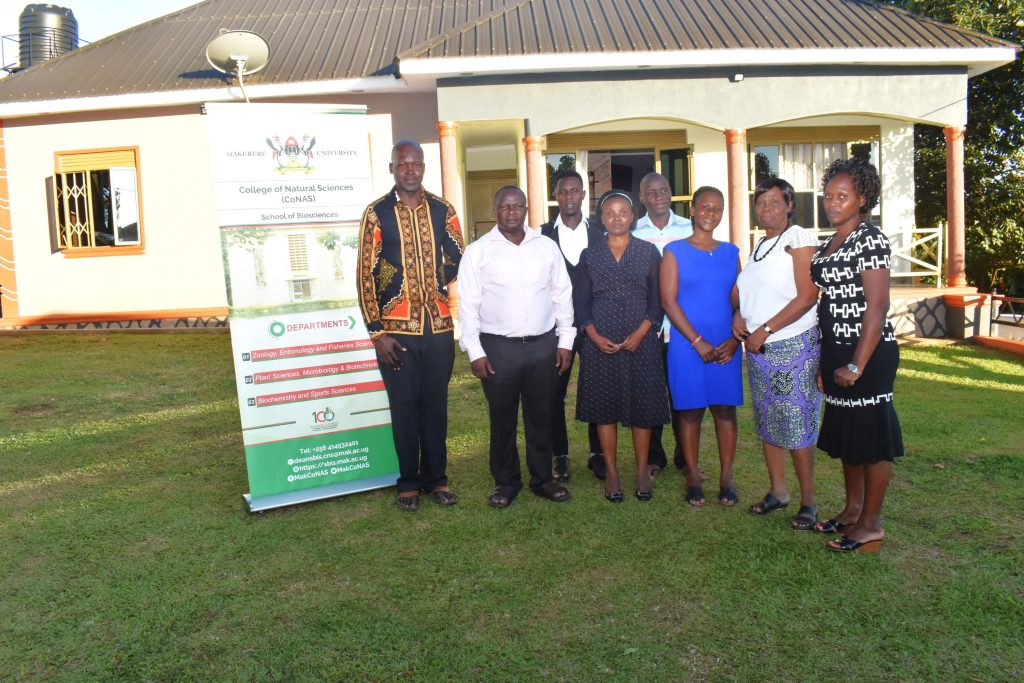*****Supported by the EU under The Horizon Europe Programme, the three-year project (2024-2026) aims to establish innovative production/ business ECOHUBS and improve local aquaculture cage farms in lakes and rivers using AI and IoT in six diverse African countries, Uganda inclusive. The Project team at Makerere University, led by Dr Godfrey Kawooya Kubiriza held a kick-off meeting on 6th March 2024 to plan for the implementation process.
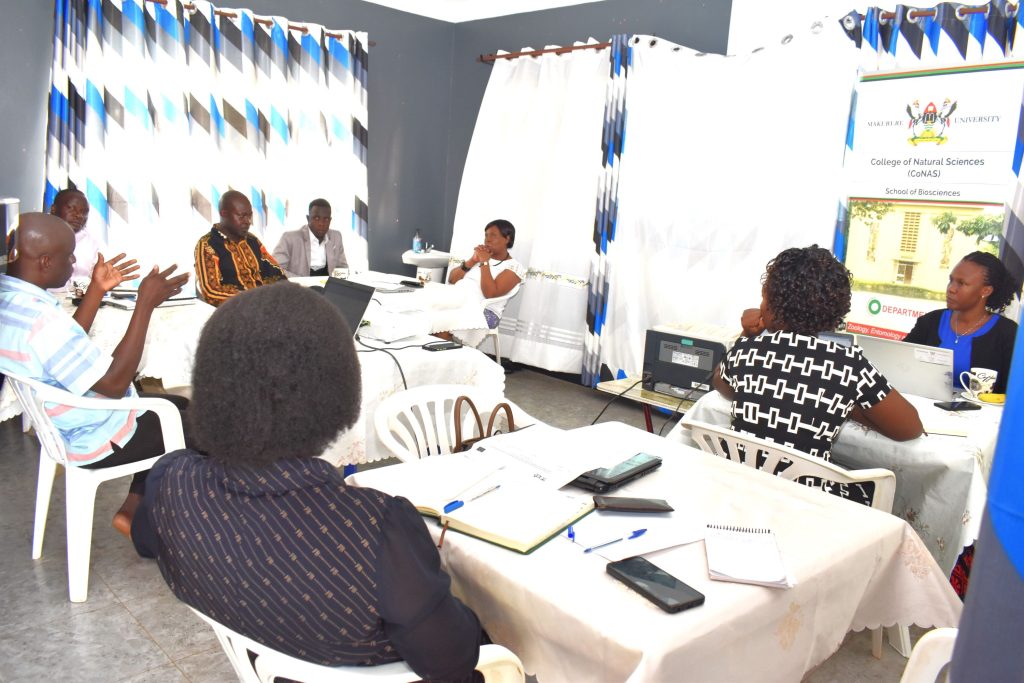
Overview
The world population will reach 9.7 billion people by 2050 (un.org), requiring a 70% increase in agricultural food production. Therefore, resources (water, land, energy and fertilizers) and global climate change demand innovative and sustainable agricultural practices. The change of production towards diversified and nutritionally balanced foods, can reduce malnutrition and obesity and associated socio-economic long-term consequences (FAO 2020). Africa has a population of 1.2 billion and 250 million people go hungry. In Sub Saharan Africa, 20% of the population (264.2 million) are undernourished and 413 million people live on less than $1.90 a day. Hunger is increasing, compounded by the Covid-19 pandemic, conflict, drought, economic problems and extreme weather. Across East Africa, 7 million people are at risk of starvation and another 33.8 million face acute food insecurity and at least 12.8 million children are acutely malnourished. Aid is not a long-term solution. The common goal is to produce nutritious food sustainably and cheaply to mitigate hunger and malnutrition globally, whilst tackling climate change, creating employment and improving livelihoods of rural people. The practice has been to feed a fast-growing population and focus on rapid economic urban development which damages health and environment globally and particularly in Africa (UN 2020). Globally, 5 million deaths per year by 2050 will likely be due to poor farming or production practices including overfishing and high use of pesticides and fertilizers in crops and antibiotics in livestock and aquaculture farming.
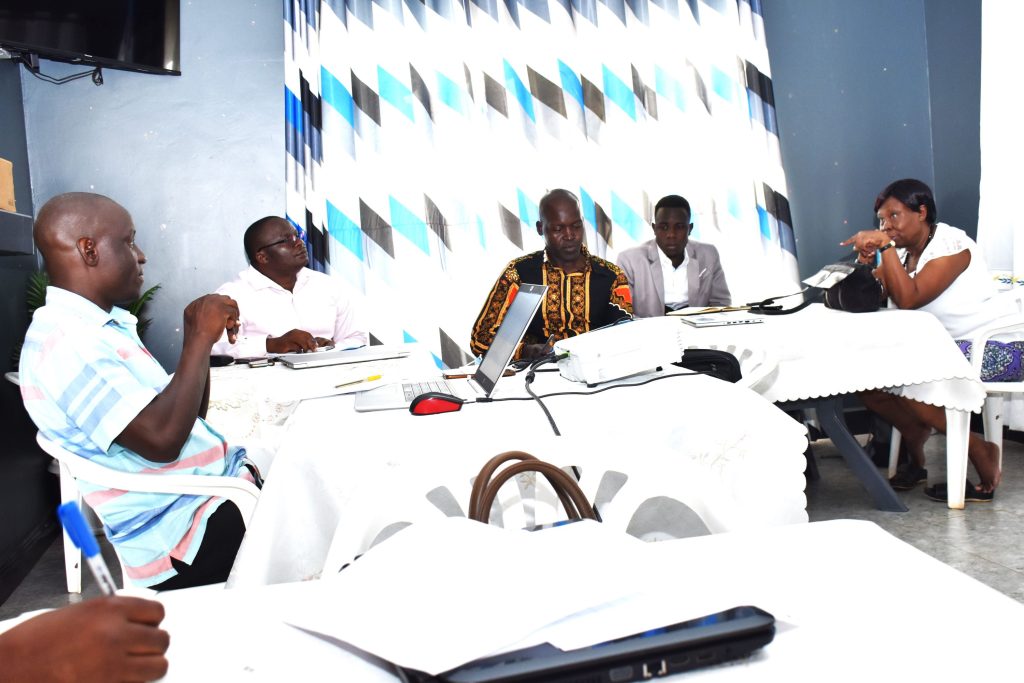
Addressing food insecurity and Nutrition gaps through the INNOECOFOOD Project
Funded by the EU under The Horizon Europe Programme, a three-year project – INNOECOFOOD (Eco-innovative Technologies for Improved Nutrition, Sustainable Production and Marketing of Agroecological Food Products in Africa) aims to address the above issues with agro-ecological approaches coupled with AI and IoT technologies and certification to ensure safe, nutritious and marketable food supplies in six African countries, with three in East Africa.
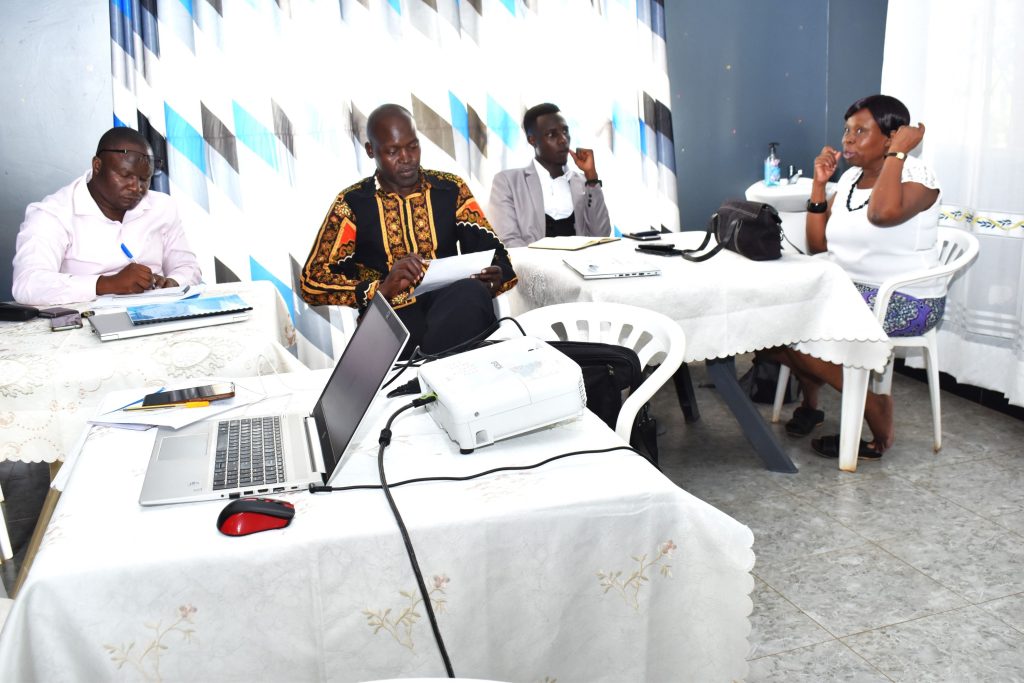
To support EU-AU markets and trade, INNOECOFOOD, an Innovation project will train rural farmers, youth and women to innovatively produce and process nutritious aquaculture fish, blue-green cyanobacteria spirulina, and selected insect value chains at pilot/large scale level into certified marketable human food products and feed. This farm to fork approach will be achieved by using climate smart sustainable local resources, innovatively designed ECOHUBs following Good Manufacturing Practice. Prototypes of innovative pilot scale solar coolers and driers will be created and replicated in four ECOHUBs using renewable energy, reduced water consumption and circular systems to address the AU/European Green Deal, by an experienced multi-actor consortium and rural communities.
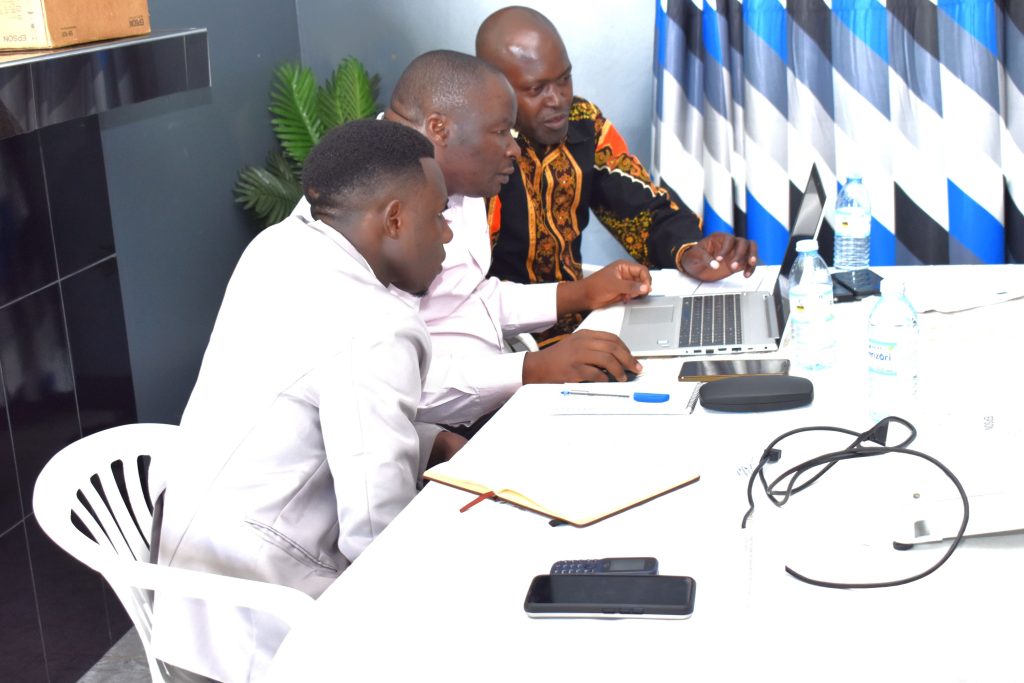
The Project partners
Comprising partners from diverse regions including Europe (Portugal, Germany, UK, and Turkey), East Africa (Kenya, Uganda, and Tanzania), Southern Africa (Namibia), West Africa (Ghana), and Northern Africa (Egypt), the consortium’s coordinating institution is CIIMAR in Portugal. INNOECOFOOD has a multidisciplinary team of 20 expert participants with skills and backgrounds in various fields including aquaculture, science and technology, biology, fish farming, spirulina and insect production, fish feed, human and animal nutrition, food safety, feed and human food production, design and installation of equipment for solar and wind energy, cooling and drying technologies, engineering for ECOHUB planning and construction, AI and IoT experts, certification, and business and marketing experts. Participant organizations include; Centro Interdisciplinar de Investigação Marinha e Ambiental (CIIMAR), B2E Associacão para Bioeconomia Azul – Laboratorio Colaborativo (B2E), and Interdisciplinary Research Center in Animal Sanity (CIISA)/ FMV, Portugal; Kenya Marine Research and Fisheries Research Institute (KMFRI), Jomo Kenyatta University of Agriculture and Technology (JKUAT), International Centre of Insect Physiology and Ecology LBG (ICIPE), Mayfair Holdings (PECHE), and Food Security for Peace and Nutrition-Africa (FSPN-Africa), Kenya; Tanzania Fisheries Research Institute (TAFIRI) and University of Dar es Salaam (UDSM) in Tanzania; Makerere University (Mak), and the Sparky Social Enterprise Limited (SPARKY), Uganda; Council for Scientific and Industrial Research – Food Research Institute (CSIR-FRI) and Ghana University of Namibia (UNAM), Namibia; Central Lab for Aquaculture Research (CLAR), Egypt; Burdur Mehmet Akif Ersoy University (BMAEU) and Denizli Gida Kontrol Laboratuvar Mudurlugu (DENIZLI), Turkey; Innotech Ingenieursgesellschaft mbH (INNOTECH) and Fraunhofer Gesellschaft Zur Forderung der Angewandten Forschung EV (ISE), Germany; and NK Sustainable Bioproducts Ltd (NKSB), United Kingdom.
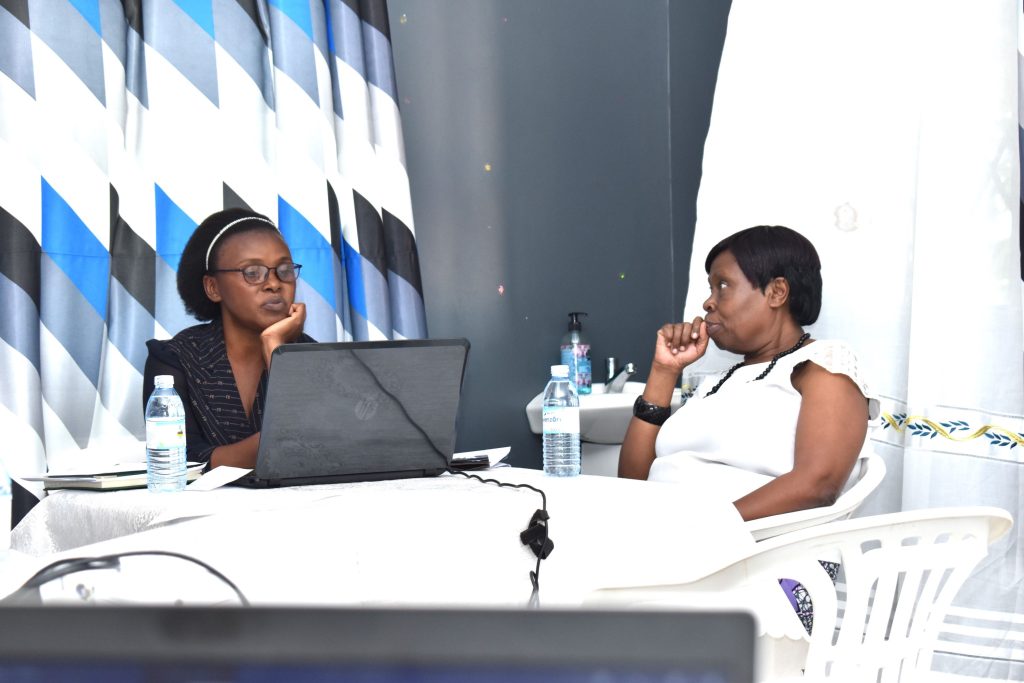
In Uganda, the Project is led by Dr Godfrey Kawooya Kubiriza, Head, Department of Zoology, Entomology and Fisheries Sciences at the College of Natural Sciences (CoNAS), Makerere University. Other members are; Dr Agnes Nandutu Masawi, Head, Department of Biochemistry and Sports Science (CoNAS); Dr Robinson Odong and Dr Peter Akoll, Senior Lecturers at the Department of Zoology, Entomology and Fisheries Sciences, Makerere University; Dr Margaret Massette, Ms. Catherine Nannyonga (Project Administrator), and Ms. Akongo Ampaire (Project Accountant).
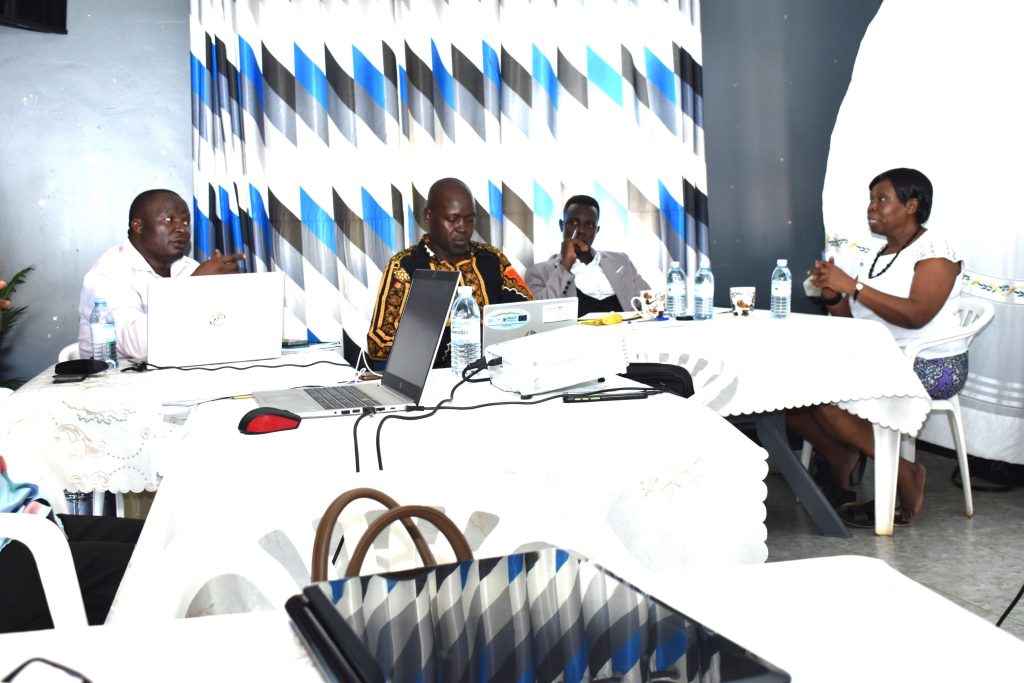
The main objectives of INNOECOFOOD with associated Work Packages (WP) are:
1. To conduct scoping of aquaculture practices in local lakes and rivers (living labs) and to establish four sustainable and innovative agribusiness rural ECOHUBS using renewable solar/wind energy for the production, processing and marketing of aquaculture value chains (fish and selected Spirulina species) and insect species in diverse African countries (WP2), to address AU and EU green deal and trade.
2. To optimize the production of eco-farmed fish (catfish and tilapia), sustainable feeds and post-harvest technologies using sensors, AI and IoT technology in aquaculture ECOHUBS and living labs sites (WP3).
3. To select and optimize the sustainable production of selected spirulina species and post-harvest processing, using AI and IoT in ECOHUBS and living labs (WP4).
4. To optimize the sustainable production of selected insect species and post-harvest processing using AI sensors and IoT technology in ECOHUBS (WP5).
5. To scope suitable plant products; up cycle fish-waste nutrients and make new products from fish and co-products, spirulina and insects by solar powered drying, extrusion with AI sensors and IoT control (WP6).
6. To validate nutritional and sensory quality, microbiological and chemical safety, consumer acceptance, life cycle analysis (LCA) impact, and to implement certification schemes using digital tools, for fish, spirulina and insect processing and products, for consumption, transparency, marketing and trade (WP7).
7. To create a database and train 120 youth and 120 women in person in four ECOHUBs in production, food quality and safety and business and marketing of fish, spirulina and insect products to improve income; to make this database widely available in selected living labs, training over five thousand community members and farmers through digital technology;
8. To liaise with certification stakeholders including trade ministries and border management; Joint EU-AU Innovation platforms; Joint Research Centre; CL6 2021 01-03 D4AgEcol and 01-05 TRANSECT Cluster projects.
9. To create a Data Management Plan (DMP) and disseminate project data and information gathered on the virtual ECOHUB, via research and commercial publications, media channels and workshops, internet, mobile apps and conferences (WP8).
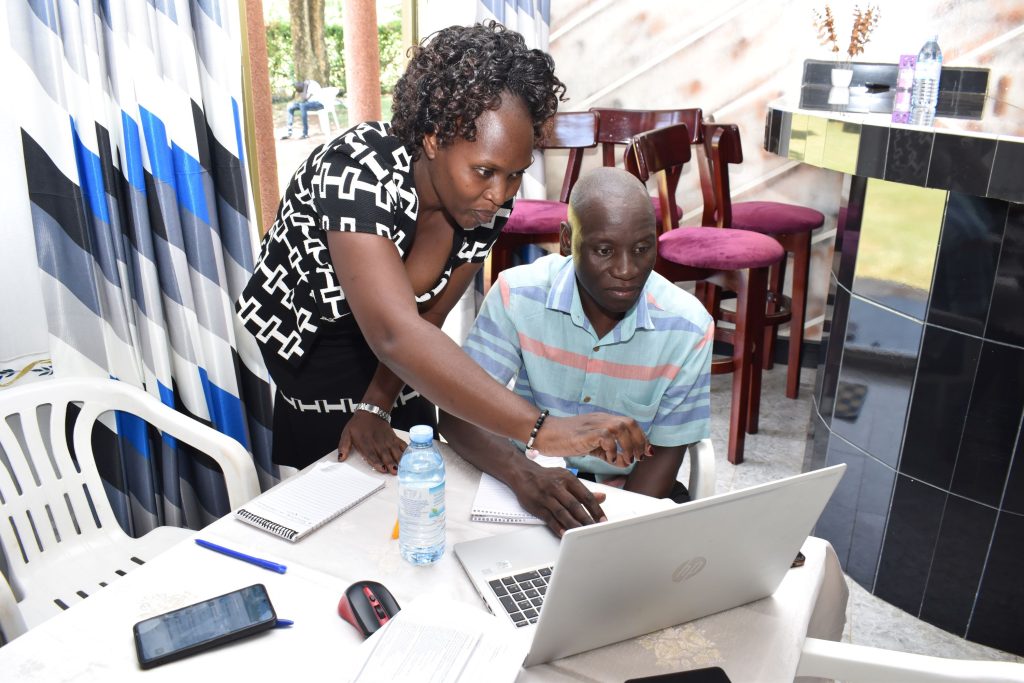
Project planning meeting
On 6th March 2024, the project team held a kick-off meeting to discuss the work packages and plan for the implementation process. The team specifically reviewed the PIP document, planned for site visits, brainstormed on sources of products to be used, and set targets and timelines for expected outputs during the project implementation period.
